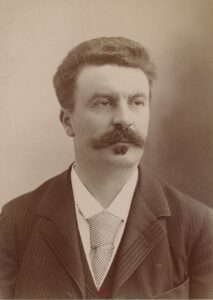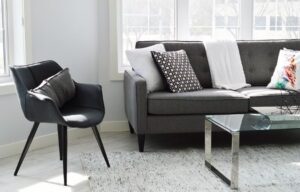Portuguese short stories – Learning Portuguese through English
Aesop’s Fables – Os viajantes e o mar
Once upon a time, there were two travellers who were walking down the beach. They were thinking of ways to become rich.
TranslateEra uma vez dois viajantes que caminhavam pela praia. Eles estavam a pensar em maneiras de se tornarem ricos.
The travellers saw something in the Sea. It was slowly coming towards them.
The first traveller said, “Look, there is something coming towards us in the sea. What could it be?”
TranslateOs viajantes viram algo no mar. Estava vindo lentamente em direção a eles.
O primeiro viajante disse: “Olha, há algo vindo na nossa direção no mar. O que poderia ser?”
The second traveller said, “Maybe it is a huge ship carrying gold and silver. Maybe they are looking for someone to share it with.”
TranslateO segundo viajante disse: “Talvez seja um enorme navio que transporta ouro e prata. Talvez estejam a procurar alguém com quem compartilhar. ”
The first traveller said, “Oh we are so lucky”
The object moved closer to them. It was not a ship.
TranslateO primeiro viajante disse: “Oh, nós somos tão sortudos”
O objeto aproximou-se deles. Não era um navio.
The first traveller said, “It is not a large ship. What else could it be?”
The second traveller said, “Maybe it is a small boat carrying the tastiest fish. Maybe they are looking for someone to share it with.”
TranslateO primeiro viajante disse: “Não é um navio grande. O que mais poderia ser?”
O segundo viajante disse: “Talvez seja um pequeno barco que transporta os peixes mais saborosos. Talvez estejam a procurar alguém com quem compartilhar. ”
The first traveller said, “Oh we are so lucky”
The object moved closer to them. It was not a boat.
TranslateO primeiro viajante disse: “Oh, nós somos tão sortudos”
O objeto aproximou-se deles. Não era um barco.
The first traveller said, “It is not a boat. What else could it be?”
The second traveller said, “Maybe it is a small chest of Gold. Maybe we can sell it and become rich.”
The first traveller said, “Oh we are so lucky”
TranslateO primeiro viajante disse: “Não é um barco. O que mais poderia ser?”
O segundo viajante disse: “Talvez seja um pequeno baú de ouro. Talvez possamos vendê-lo e ficar ricos. ”
O primeiro viajante disse: “Oh, nós somos tão sortudos”
The object washed along the shore. It was not a ship. It was not a boat. It was not a chest of gold. It was just a wooden log.
TranslateO objeto lavou ao longo da costa. Não era um navio. Não era um barco. Não era um baú de ouro. Era apenas um tronco de madeira.
Moral: “Do not let your hopes carry you away from reality.”
TranslateMoral: “Não deixe que as suas esperanças o afastem da realidade”.
Hope you had fun learning the Portuguese language through short stories 🙂 If so leave a comment!!!
For more languages:
Learn German through Short stories: https://childhood-stories.com/German
Learn Spanish through Short stories: https://childhood-stories.com/Spanish
Learn Italian through Short stories: https://childhood-stories.com/Italian
Learn Dutch through Short stories: https://childhood-stories.com/Dutch
Learn French through Short stories: https://childhood-stories.com/French
Learn Portuguese through Short stories: https://childhood-stories.com/Portuguese
Learn Portuguese through Short stories: https://childhood-stories.com/English
About: Studying through Dual Language immersion is among the best techniques for learning a new language. The objective of this website is to teach yourself how to read and speak Portuguese confidently using English as a base 🙂
These Portuguese short stories are super cool to read for beginners and also for entertaining children. Aesop’s Fables are among the best stories that can be studied on a daily basis.




